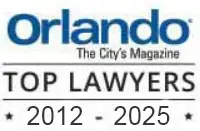In car accident injury claims, subrogation may be used to recover money from a third party. Learn how an insurer’s right of subrogation affects your claim.
For most, “subrogation” is a strange term. Because it deals with insurance benefits and contracts, it can be a difficult legal concept. If you are injured in a Florida car accident, knowing generally what subrogation means and how it affects you is important.
This article explains the basics of subrogation so you may understand what goes on between the various insurance companies regarding your coverage.
If you are currently dealing with a personal injury claim and have questions about insurance or any other issue, please contact TK Law without delay.
Speak with an experienced Florida attorney at our firm today.
Call 855-Kramer-Now (855-572-6376).
In Orlando and throughout Florida, it is critical that you protect yourself by buying Underinsured / Uninsured Motorist Coverage (UM) through your own insurance company. With UM insurance, you ensure that you will be compensated if you suffer personal injuries caused by a careless driver who has little or no liability insurance.
- But against whose insurance is a claim made?
- What insurance pays out in the end?
- How are payments tracked or verified when various insurance providers are involved?
- Are there ever over-payments or under-payments?
These matters usually sort out through subrogation claims between insurance companies.
What does “right of subrogation” mean?
To subrogate means to substitute one person or entity for another with reference to a legal debt or claim. In the case of a car accident where the at-fault motorist is underinsured, that debt would be the insurance coverage.
The purpose of subrogation is to enforce the final payment of compensation from the driver that was at fault. Your insurance company – the UM insurer – is going to try to reclaim some or all of its money from the negligent and underinsured driver who caused the accident.
Insurance providers can only subrogate other parties if their client is not responsible for an accident.
How does Florida subrogation law work in car accidents?
If another driver’s negligence caused the accident, and that driver has insufficient liability insurance, you look to your own UM insurance policy.
You contact your UM carrier, file a claim, and your UM policy generally covers your expenses relating to your personal injuries from the accident—up to the limits of the policy.
If you decide to settle with the underinsured driver, you must follow the procedure set out in the Florida Statutes. This procedure requires that you (or your attorney) send written notice of the proposed settlement to the insurers that provide underinsured motorist coverage. Notice should be sent by Certified or Registered Mail.
Depending on the circumstances, your insurer may pursue its right of subrogation with the individual at fault, or their insurance company. Because the at-fault driver is responsible for your injuries, your insurance carrier has the right to sue the at-fault driver to recover money you or your insurer have already paid—including the amount of your deductible.
In other words, the UM carrier may be entitled to a credit – or “offset” – against the total damages you sustained as the wrongfully injured party. The amount the UM carrier is entitled to is the amount paid to the injured party.
Subrogation prevents the UM benefits from duplicating any benefit that you (as the injured party) have already received from other sources.
Secondary sources involved in subrogation can include:
- Health insurance
- MedPay
- Medicare
- Medicaid
Because these sources made payments, they may have legal claim against any settlement you collect from the at-fault party, and should be reimbursed for payments they have made to your doctors and health care providers.
Note, Florida’s PIP benefits are generally not subject to subrogation.
Florida has rigid statutes regarding insurance contracts.
FL Statute 627.727(6) states (generally) that:
If you are covered by UM and you are injured in a car accident – before accepting a bodily injury settlement, you must inform your UM provider in writing as soon as you decide to settle the case with the at-fault motorist.
In other words, should a settlement take place with the bodily injury carrier, it is mandatory that you place your UM carrier on notice.
Once notified, the UM insurer has 30 days to make a choice: it must either
- agree to the settlement – thus giving up its “rights of subrogation” against the at-fault driver), or
- pay the settlement amount offered by the at-fault motorist – in which case the UM carrier keeps its rights of subrogation against the at-fault driver.
Note: If the UM provider does not respond within 30 days to your proper notification that you wish to settle and claim UM coverage, the UM provider essentially gives up its rights of subrogation.
The importance of the UM insurer waiving vs. keeping its right of subrogation is this:
- If the UM insurance carrier waives its subrogation rights by authorizing the settlement (or fails to respond in 30 days)—you (as the wrongfully injured party) may execute a full release in favor of the at-fault, underinsured driver’s liability insurer and its insured, and finalize the proposed settlement without prejudice to any underinsured motorist claim.
- If the UM insurance carrier elects to keep its subrogation rights by refusing permission to settle, the UM insurer must, within 30 days after receiving notice of the intended settlement, pay to you (as the injured party) the amount of the written settlement offer from the underinsured driver’s liability insurance provider. After that, once final resolution of the UM claim is reached, the UM insurer may then seek subrogation against the underinsured driver and the liability insurer for the amounts paid to you (as the injured party.)
Why most people have never heard the term “subrogation”
In car accident injury cases, subrogation is something that occurs between the insurance companies. Happening behind the scenes of an insurance claim, subrogation is a last step in the claims resolution process – which is why the term is unfamiliar to most.
Three parties are involved in car insurance subrogation:
- the insured person (and his/her attorney)
- the insurance provider that carries your UM insurance coverage
- the tortfeasor (the person responsible for the wrongful act that results in injury to another).
Speak with an experienced Florida attorney at our firm today.
Call 855-Kramer-Now (855-572-6376).
An example of subrogation.
As you can imagine, various situations can lead to increasing levels of complication with an insurer’s right of subrogation. It is rarely the case that one driver is 100% at fault and that driver has bodily injury liability (BI) coverage.
Most car accidents are more complicated—especially in Florida, where a person is not legally required to have BI insurance coverage to drive a car. Here is an example of how a subrogating claim can be handled:
Suppose you have stopped for a red light; the light turns green and you proceed forward – and out of nowhere a truck barrels through the intersections and t-bones you broadside. The negligent driver has minimal liability insurance. That driver has caused you serious injury – but thankfully you have UM coverage.
With minimal delay, you are able to cover medical expenses using your own insurance.
Meanwhile, your UM insurance provider has retained its rights to subrogation. At some later point, your UM provider asserts it subrogation rights and legally sues the at-fault driver for recovery of your deductible amount, and the insurance company’s costs.
Many factors play into this scenario. Suing an insurance company is one thing; but suing an individual is quite different. Does the individual being sued have enough available assets to make a lawsuit viable?
Many times, the fact that a person does not have adequate bodily injury liability coverage is because of a lack of funds in the first place. Other times, an individual with ample assets may have those assets protected from litigation.
If the UM insurance provider believes that the negligent motorist who caused the accident has available assets greater than the limited Bodily Injury (BI) insurance coverage, then most often the UM insurance company will subrogate.
Subrogation lawyers at TK Law can help you now.
In the world of insurance, subrogation is a big part of business. Just as collecting premiums is profitable, so is the recovery of subrogation dollars.
Your car accident attorney plays a critical role in handling subrogation in a personal injury claim. Your attorney has a duty to explain an insurer’s right of subrogation to you and to diligently engage in subrogation issues in your case.
As your lawyers, it is our responsibility to protect you by determining whether payments were made to any physicians or other health care providers from collateral sources. We investigate and gather lien amounts from secondary sources in your case, and oversee the proper reimbursement of those sources through the subrogation process.
If you have questions, learn how we can help in a free consultation. We are always available to talk with you and answer your questions.
Contact us or call 855-Kramer-Now (855-572-6376) regarding this or any other legal issue so we can effectively help you.











